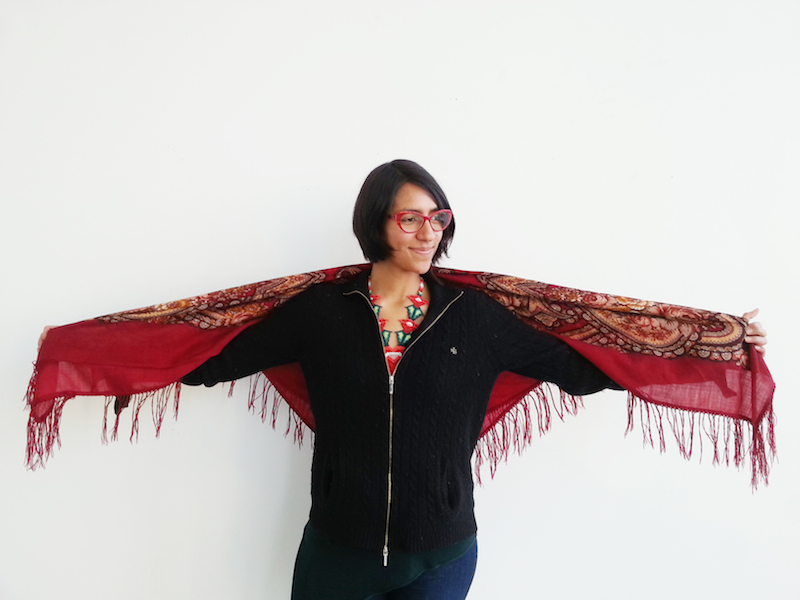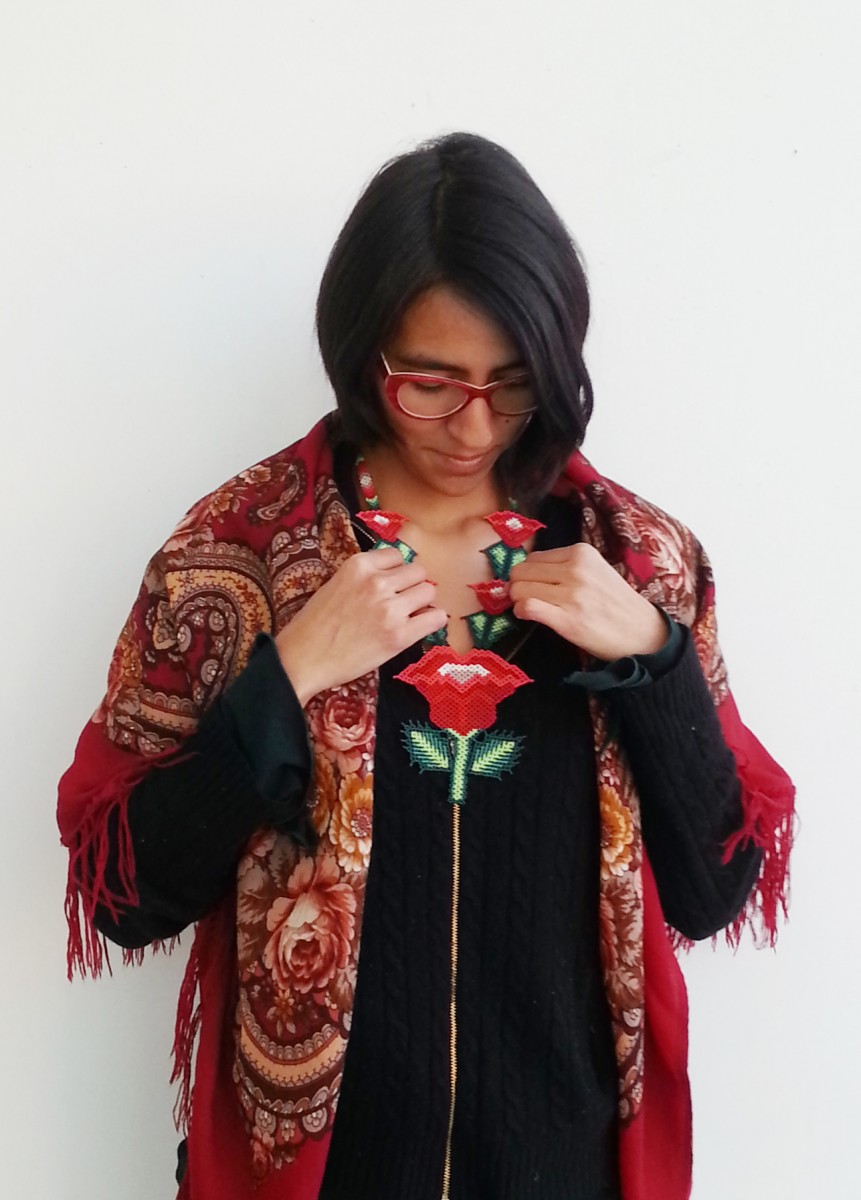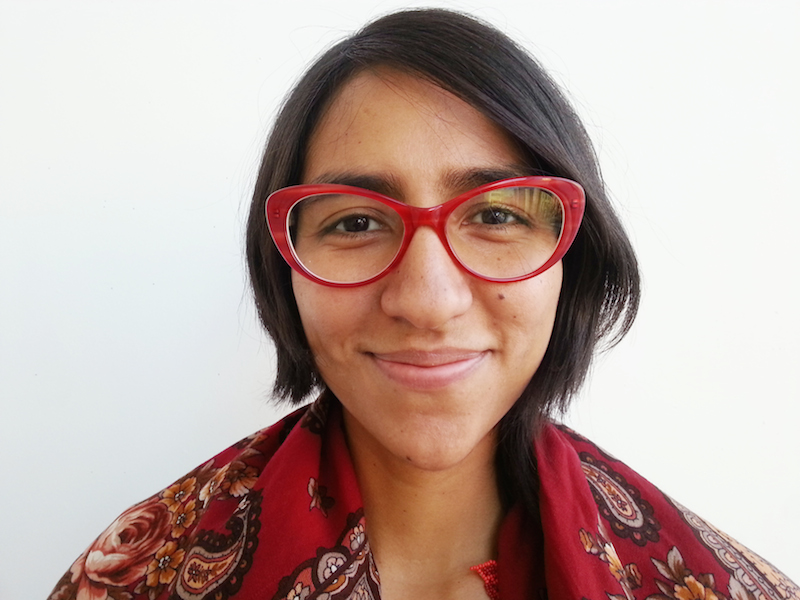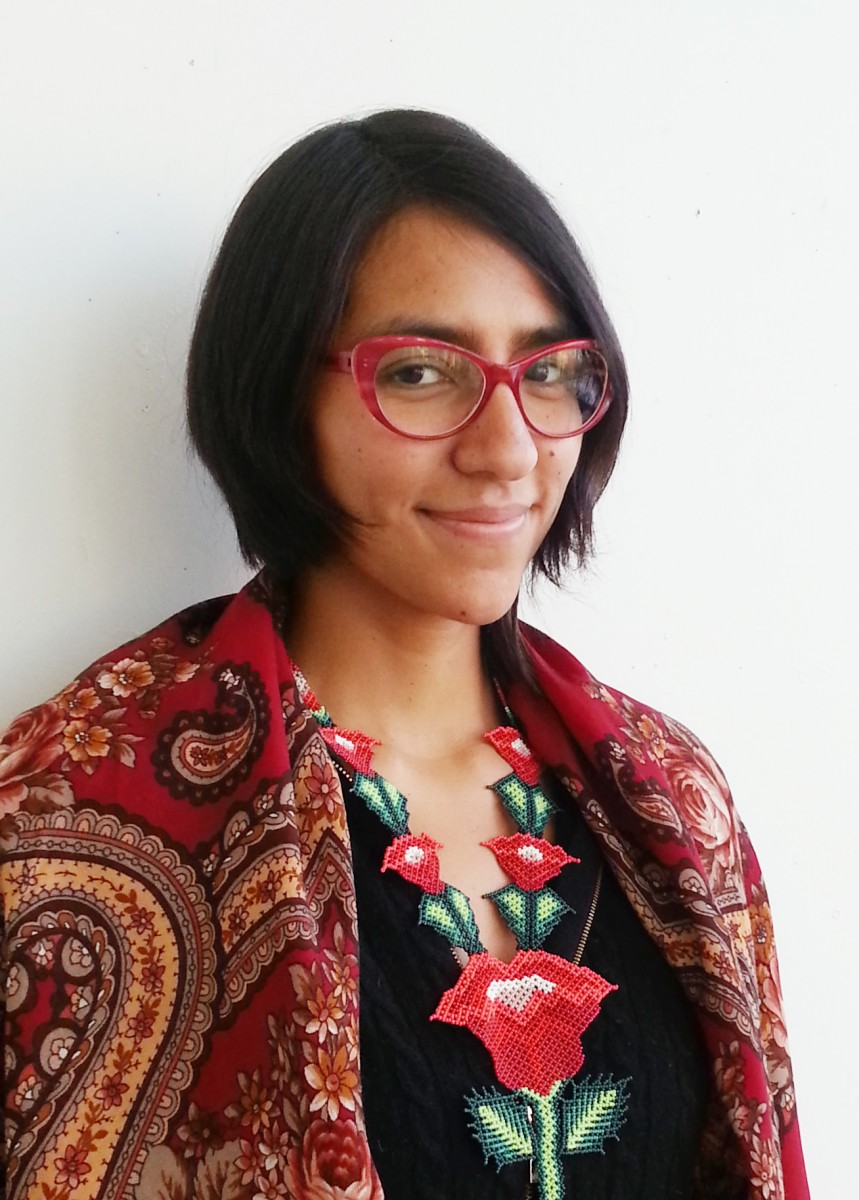
Alaide Vences Estudillo / Photo: Sean Moore
CANDID: Q&A with grad student Alaide Vences Estudillo
Roughly 3,800 students are enrolled in the University of Manitoba’s Faculty of Graduate Studies. They come from around the world to study here and UM Today is getting to know some of them on a more personal level. We want to know who they are and why they chose the field they did, and about their hobbies, regrets and musical tastes — anything, really, that comes up in conversation.
CANDID is a new regular feature that will bring these remarkable individuals to the fore. Enjoy!
PhD student: Alaide Vences Estudillo
Studying in: Arthur V. Mauro Centre for Peace and Conflict Studies
Advisor: Maureen Flaherty
UM Today: So where are you from?
Alaide Vences Estudillo: I am from Jojutla, a little town in the state of Morelos, in the central region of Mexico. The state of Morelos is famous for being the home of very important social movements, such as the peasant struggle during the Mexican revolution, the liberation theology and the feminist movement during the 80s.
Do you miss it?
Yes, I miss my family, the mountains, the smells and the food.
What kind of smells?
One of the smells that I miss from my hometown is the smell of the land. My hometown is surrounded by sugar cane plantations so you can smell a sweet fragrance from the fields.
What did you notice about Winnipeg when you came?
Maybe the weather. It’s really interesting how people can survive under these conditions. It surprises me that even with cold weather people go outside and do outdoor activities. It is amazing that bad weather conditions do not impede people to be happy.
Does it ever get cold where you’re from?
Not at all. It is very warm during the year. In fact, the meaning of the name of my hometown — Jojutla — is ‘the burning land.’
In a nutshell, what is it you study?
I’m doing a PhD in Peace and Conflict Studies. It’s an interdisciplinary program, and also an international one because it receives people from all over the world.
The reason that brought me to this program is that it has a space for my research. In my PhD dissertation I would like to analyze how feminist activists engage in collective work to push forward social transformation, how are they transforming the notion of collaborative action and how are they challenging power relations in social organizing.
What did you want to be as a kid?
I thought I was going to be a scientist. An Astronaut or something like that. But I also wanted to work with peace. I was very attracted by the idea of being a diplomat and I dreamed of working for peace.
So what is it that got you into peace and conflict?
I was always dreaming that I should do something to improve the conditions of social inequality that exist in the world. And then I did a BA in international relations. It is an interesting field of study but I discovered that diplomacy was not the kind of work I wanted to do. International diplomacy is very bureaucratic and in my opinion it only reproduces the power dynamics that creates injustice in the world. I think that to build justice and peace it is necessary to create solutions from the bottom up, it is important to consider the voice of the grassroots, because people are the main units that sustain social structures, and throughout history they had always been the protagonists of the greatest social transformations.
I got into peace and conflict studies because it is a field that challenges oppressive notions of power.
Do you belong to any grassroots groups yourself?
After finishing my master’s degree in gender studies, in 2011, I started working in a feminist organization that is based in my hometown in Mexico. In this organization I used to coordinate training activities to strengthen women leaders from a feminist standpoint. I also organized training activities to build capacity in women’s organizations.
Even right now, when I am enrolled in a PhD program and I am working in academia, I see myself as part of a broad feminist movement, because I want to produce research that will inform and support feminist activists.
And in that sense, maybe yes.
You chose a difficult line of work because peace on Earth is going to be hard to achieve. Actually, for fun, tell me in 30 words or less why peace on Earth is so hard to achieve?
It’s hard to achieve peace, but on the other hand, it’s not really hard because the fact that you and me are sitting here and having this conversation, it’s because there is peace. Sometimes we don’t pay attention to those things that allow people to connect, to trust and support each other.
I think you just blew my mind. I never thought about all the small bubbles of peace that surround me. Peace is actually all around me.
Yes, peace is all around. Although that doesn’t mean there aren’t horrible things going on in the world and that there aren’t injustices. What I am trying to say is that building peace can be difficult if we are unable to recognize the current practices and the cultural values that do bring people together.
On the other hand, I also think that violence became a very popular practice among humans because it was justified to be a natural behaviour. But recent research shows that violence is learned and socially cultivated. To build peace you need to unlearn violence, and not many people are willing to take that chance. Some people are afraid of peace because they profit from the use of violence, they do not want to lose their privileges.
Growing up in Mexico, do you think that was a reason behind your interest in peace and conflict?
Yes, the current social context in my country is another element that influenced me to learn more about how to solve conflicts in a constructive way. As a result of the war against drug cartels that the Mexican government initiated in 2006, social violence escalated dramatically. Around a hundred thousand people had been killed and thirty thousand people disappeared.
What do you parents do? Are they into peace and conflict, or diplomacy?
In the past they were very involved in social activism, now they are older so they are less active. Their commitment to social activism inspired me to care about justice and equity.
Prior to 2000, Mexico was governed during seventy years by the Party of Institutional Revolution (PRI). To remain in control of the government this party developed authoritarian practices. My parents always believed that governments must include the voice of those from below and this is why they were involved in a social movement to demand the democratic transition of Mexico. My first memories of being a child are connected to my parent’s involvement in social activism. I remember all my childhood joining them in strikes, assemblies and marches.

Alaide Vences Estudillo keeps an altar on her desk on which she keeps necklaces and other treasures from her home, such as this beaded necklace./ Photo: Sean Moore
Do you have anything interesting on your desk?
I have some sacred tools that remind me of my Mexican origins and my connection to feminism, between my sacred tools there is a small candle — Mexican incense — a river stone and a painting that says ‘Feminists are those who support and defend the rights of women.’ Many of these objects were given to me by close friends.
What’s your favourite part of this job?
[Laughing. Hard.] That’s a difficult question. [Laughing, still.] There are beautiful things but it’s just that it has been a very tough time writing my papers and all the pressure of finishing soon. Doing a PhD is not the easiest thing in the world… But now that you ask.. the best part I enjoyed of my PhD was getting to know my professors, they are the most inspiring and supportive tutors I ever had. I see them as my allies in the search for peace. They changed the way I conceive of teaching, because they value the voice of everyone and encourage the active participation of students.I should have asked this a while ago, but why here? Why did you choose U of M?
I think it was because of the program. It’s a special program. There are not a lot of programs that connect peace and conflicts in the same field. You can find peace studies, conflict resolution programs, but not many peace and conflict studies…. There’s a university—two universities—in Spain where they have a program that connects peace and conflict studies, but I chose the program in the University of Manitoba because it is more prestigious.
But in Spain you could have spoken Spanish and wrote your thesis in Spanish. It would have been so much easier.
Yeah, but I wanted to know what would life in Canada would be like, it is considered to be one the best countries to live in.
Thanks for your time.
Thanks a lot to you for listening to my story.
Research at the University of Manitoba is partially supported by funding from the Government of Canada Research Support Fund.








